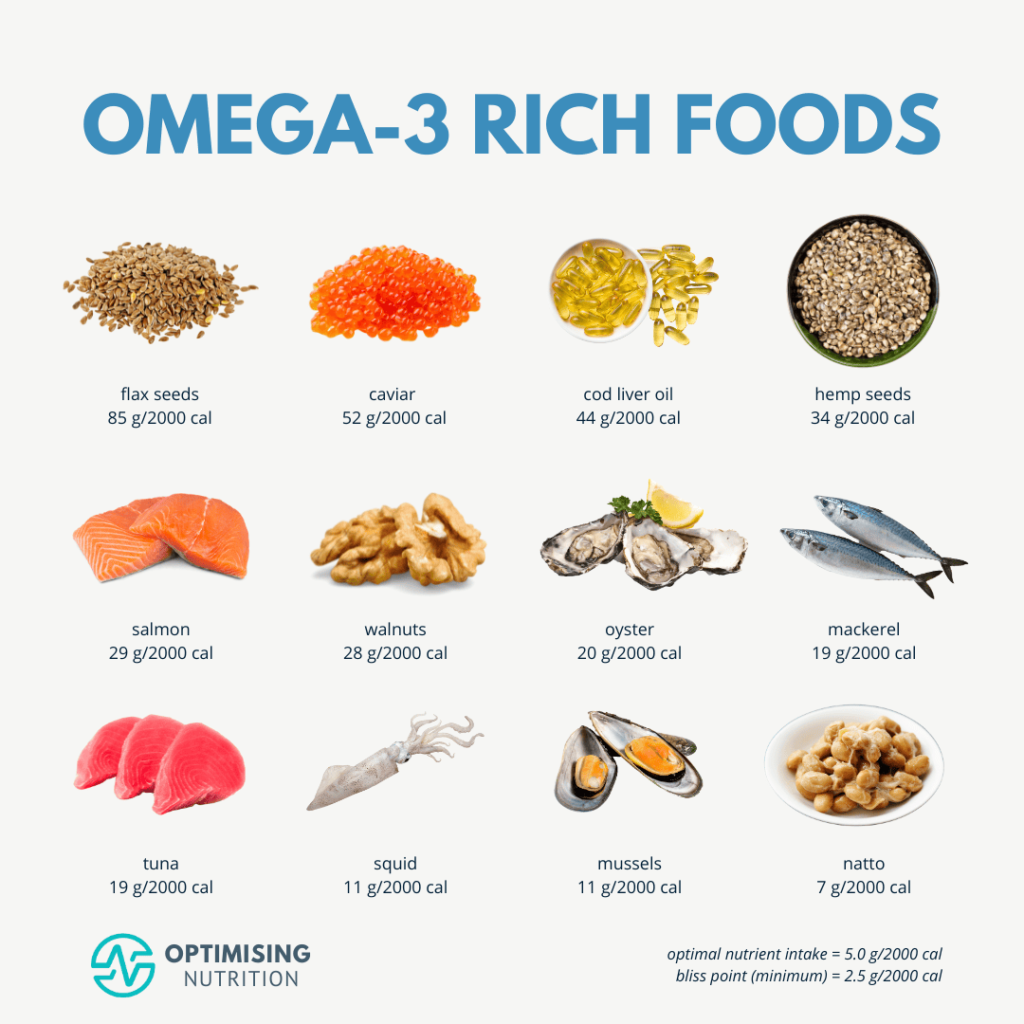Omega-3 fatty acids are among the most researched nutrients for their profound impact on human health. These essential fats, found in certain foods and supplements, play a crucial role in heart health, brain function, and overall well-being. As scientific studies continue to explore their benefits, omega-3s remain a cornerstone of modern nutritional advice.
What Are Omega-3 Fatty Acids?
Omega-3s are polyunsaturated fats essential for numerous bodily functions. The three main types include:
- EPA (Eicosapentaenoic Acid): Known for its anti-inflammatory properties, found primarily in fatty fish.
- DHA (Docosahexaenoic Acid): Crucial for brain health and cognitive function.
- ALA (Alpha-Linolenic Acid): A plant-based omega-3 found in flaxseeds, chia seeds, and walnuts, which the body converts into EPA and DHA.

Benefits for Heart Health
- Reduction in Triglycerides: Omega-3s lower harmful fat levels in the bloodstream, reducing the risk of heart disease.
- Anti-inflammatory Effects: They reduce inflammation in blood vessels, promoting better cardiovascular health.
- Lowered Risk of Arrhythmias: Studies suggest omega-3s can stabilize heart rhythms and prevent sudden cardiac death.

Impact on Brain Function and Mental Health
- Cognitive Support: DHA, a major component of brain cell membranes, improves memory and learning.
- Mood Regulation: Omega-3s are associated with reduced symptoms of depression and anxiety.
- Prevention of Neurodegenerative Diseases: They may slow the progression of conditions like Alzheimer’s.

Omega-3s in Your Diet
- Fatty Fish: Salmon, mackerel, and sardines are rich sources of EPA and DHA.
- Plant-Based Sources: For vegetarians and vegans, chia seeds, flaxseeds, and walnuts provide ALA.
- Supplements: Fish oil or algal oil supplements are excellent for those who struggle to consume sufficient omega-3s through diet alone.

Daily Recommendations
Health organizations recommend at least 250–500 mg of combined EPA and DHA per day for most adults. However, higher doses may be needed for individuals with specific health conditions.

Emerging Research on Omega-3s
Recent studies highlight potential benefits beyond heart and brain health, including anti-aging effects, improved eye health, and reduced risk of autoimmune diseases. As research evolves, the importance of omega-3s in holistic health continues to grow.

Final Thoughts
Omega-3 fatty acids are essential for maintaining a healthy heart, sharp mind, and overall vitality. Incorporating these fats into your daily diet is a simple yet impactful step toward better health. Whether through natural foods or high-quality supplements, the benefits of omega-3s are undeniable.




